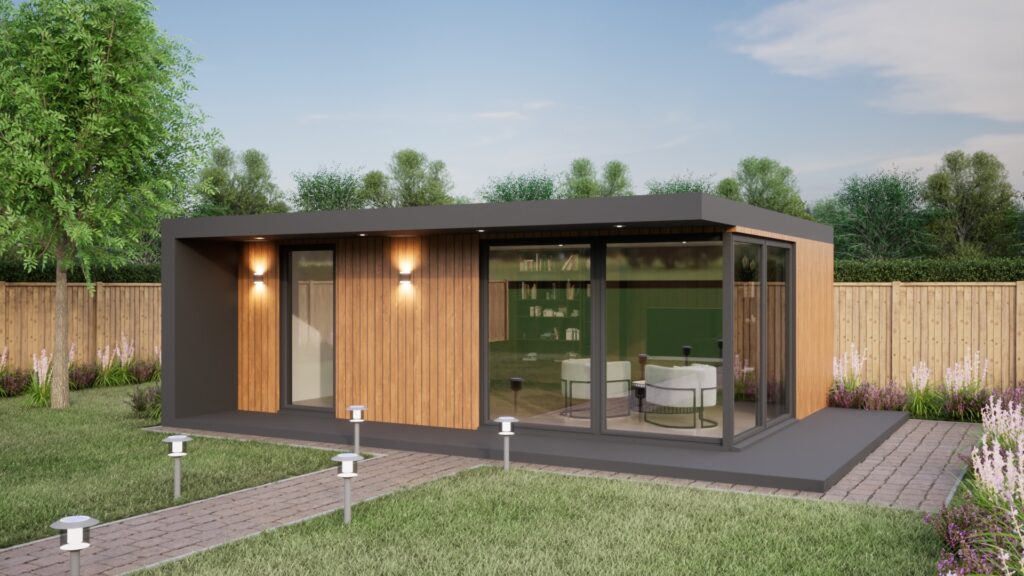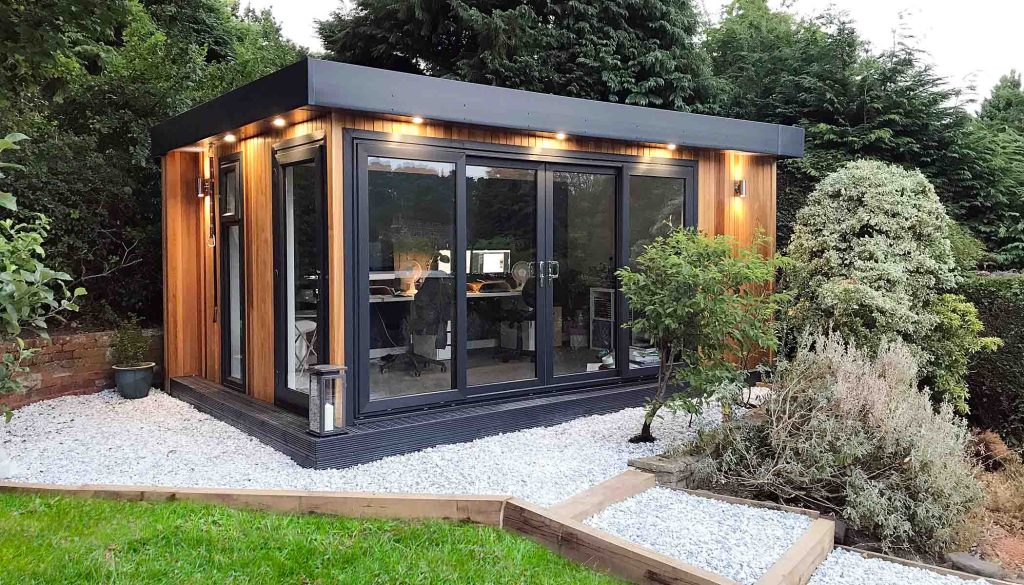Recommended Facts On Planning Permission For Garden Buildings
Recommended Facts On Planning Permission For Garden Buildings
Blog Article
What Authorizations Do You Need For Garden Rooms Or Other Uses In Terms Change Of Use?
When deciding if planning permission is required for garden rooms or conservatories or outhouses as well as garden offices or extensions, "change of use" is also known as "change of the purpose" is an essential part. Here are the main considerations for a planning permit related to the change of use: Change from non-residential use to residential:
If you are planning to convert a non-residential structure (like a garage or an agricultural building) into a dwelling or garden office, planning permission is typically required. This is due to changing the use class of the building.
Garden Rooms as Living Spaces:
The use of a garden room for a separate living space (e.g. as an apartment, guesthouse or other similar arrangement) is a change in use. Planning permission is required to ensure the structure is in compliance with residential standards and the regulations.
Business Use:
Planning permission may be required if your intention is to use the garden and conservatory, the extension, etc. to serve a business purpose (e.g. for office space for the home of a business that has frequent guests as well as employees). It's because of the impact it could impact the surrounding area, such as noise, traffic and parking.
Education or Community Use
The conversion of the space from a garden area to a community or educational space (such as a hall for meetings or classroom) requires approval from the planning department. The local authorities will evaluate the viability of the site and the impact it has on the surrounding area.
Impact on local infrastructure:
Any change of use that significantly impacts local infrastructure (e.g. drainage, roads, and public services) usually requires planning permission. This will be evaluated by the local planning authority during the process of applying for permission.
Dual Use:
Properties that are going to be a mixed use (such as commercial or residential properties that are part-commercial and part-residential) Planning permission is often necessary to clearly define and govern the different functions within the property.
Increased footfall, traffic and revenue
Planning permission might be needed if the change in use is likely to increase pedestrian or vehicular traffic (e.g. converting the garden into a retail space). This is to mitigate any potential adverse impact on the neighborhood.
Building Regulations Conform:
Although it's not an issue of planning, any changes in use should be governed by building codes to ensure standards of safety, energy efficiency, and health. This is particularly important when it comes to conversions into habitable spaces.
Environmental Impact:
Planning permission will be required for changes in usage that could impact the environmental. For instance, converting an agricultural field into residential space. Environmental assessments may be needed in the process of submitting an application.
Impact on Community and Amenities:
The impact on local community amenities as well as the overall character of the neighborhood is a key consideration. If you plan to convert the garden into cafes, for example, planning permission is required. This will make sure that the plan is compatible with local plans for community development and preserves the local amenities.
The following areas are identified as:
In designated zones (such such as National Parks and Areas of Outstanding Natural Beauty), there are stricter regulations to ensure that the unique character of the area is preserved. This is the reason why planning permission will be required.
Local Planning Policies
Local planning authorities typically have very specific policies on changes of use. These can be quite different. Review the policies to find out the kind of changes that require approval, and what requirements are required.
Summary The need for planning permission is essential to make any significant change in use of an extension or conservatory, such as a garden room or conservatory. This will ensure that the new usage is suitable for the location, complies with local and national plans, and is able to address any potential impacts on the surrounding environment and the community. It is crucial to speak with the local authorities regarding planning early in the process, so that you can determine the requirements specific to your project and obtain the required approvals. Follow the top rated heating for summerhouse for blog recommendations including what size garden room without planning permission, costco garden buildings, garden rooms in St Albans, myouthouse, garden room heater, outhouse, garden rooms near me, what size garden room without planning permission, garden room or extension, insulated garden rooms and more.
What Planning Permits Are You Required To Obtain For Your Gardens, Etc. In Terms Of Environmental Impact?
If you are planning to construct conservatories, garden rooms, outhouses, garden offices, or extensions, considering the impact on the environment is essential and may influence the need for permission for planning. These are important considerations for the environment Biodiversity:
If the proposed construction will affect the habitat of wildlife in the area like hedgerows, trees, or ponds, the planning permit is required. In order to minimize and assess the impact, an eco-survey may be required.
Protected Species and Habitats:
The planning permission is required if the site is home to protected species (e.g. bats, newts) or is located close to habitats that are of scientific interest (e.g. Sites of Special Scientific Interest: SSSI). In order to protect them it is essential to implement specific measures.
Preservation Orders for Trees Preservation Orders
Planning permission could be required if the structure includes the removal or modification of trees covered under TPOs. Local councils will assess the impacts, and could require replacement plantings to be constructed or any other mitigation measures.
Risk of flooding and Water Management: Risk and Water Management:
Planning permission might be required to develop in areas that are prone to flooding or in close proximity to waterbodies. A flood risk assessment (FRA) may be required to ensure the structure has adequate drainage and doesn't increase the risk of flooding.
Sustainable Construction Practices
Planning permission may be needed to ensure sustainable materials and construction practices. It is essential to take into consideration the energy efficiency of the products, the insulation they provide, and the carbon footprint they leave.
Surface Water Runoff and Drainage:
The impact of new construction on drainage and surface runoff are important environmental issues. Planning permission assures that proper drainage systems to stop flooding and waterlogging are in place.
Soil Stability and Soil:
If the construction is likely to impact soil quality or land stability, planning permission is necessary. This can include issues such as soil erosion or subsidence particularly on sloped sites.
Air Quality:
Planning permission is required to build developments close to industrial zones or major highways that could affect the local air quality. This will ensure that the levels of air pollution stay within acceptable limits. Mitigation measures will also be taken into consideration.
Noise Pollution:
If the planned use of the extension or garden room is likely to create significant noise (e.g. or a workshop or music studio) the planning approval is required. The local council will assess the levels of noise and their potential impact on neighbours and environmental impact.
Waste Management:
The proper management of waste both during and following construction is vital. Planning permits allow for sufficient recycling, disposal of waste and the reduction of environmental impact.
Energy Efficiency
The planning permit could include conditions for energy efficiency like solar panels, high-performance glazing, or any other green technologies. This can reduce the environmental footprint.
Environmental Regulations
Environmental regulations, such as the UK Environmental Protection Act must be adhered to in all developments. Planning approval assures that all regulations are met in addition to the development being sustainable for the environment.
Planning permissions for garden rooms or conservatories, as well as outhouses, office buildings and garden offices need to take into consideration various environmental aspects. Contact the local authority for planning as early as possible in the planning phase to ensure you understand the specific requirements. Read the best garden rooms hemel hempstead for site examples including composite garden rooms, outhouse builders, ground screws vs concrete base, what size garden room without planning permission, garden room or extension, garden room vs extension, garden rooms in St Albans, how to get power to a garden room, gym outhouse, outhouse and more.
What Permits Do You Need In Relation To Garden Rooms And Other Structures In Terms Utilities And Infrastructure When It Is Time To Plan?
If you're planning to build a garden room, conservatory outhouses (garden offices) or extension infrastructure and utility considerations are essential. This could impact the need for a permit to plan. Here are some important considerations water supply and drainage
Planning permission may be required in the event that the building will require connections to the water supply or drainage systems. Local water authorities may have to assess the effect of the construction on the supply of water or the sewage system.
Gas and electricity connections:
If you are planning to connect your new construction to an electricity or gas supply, you may need an authorization for the project. For these connections it is essential to be in compliance with construction codes and safety standards.
Utility Easements
Planning permission could be required if the structure is in an area designated for infrastructure and utilities. Construction within these zones may require approval from local utilities.
Sewage systems and septic tanks
It is important to obtain planning permission if you are installing a septic tank or sewer system on your property. This system must adhere to environmental and health regulations.
Drainage and Surface Water Management:
You may need to get planning permission for drainage and runoff from surface waters. It might be necessary to implement measures to prevent floods or erosion, as well as water pollution.
Access to Utilities for Construction
Permission is required if the construction process necessitates temporary access to the utilities, for example water (for reasons of construction). Connections that are temporary are subject to environmental and safety rules.
Impact on local infrastructure
The local authority will assess whether the infrastructure that is in place could support the growth. This includes roads, utilities, as well as public services. The local authority must decide whether the infrastructure can support the new development.
Recycling and Waste Management
Planning permission may include provisions for the management of waste during construction, and recycling following. To limit the environmental impact, it is essential to make adequate provision for waste management and recycling.
Energy Efficiency & Renewable Energy
It is possible that you require permission for the installation of renewable energy systems like solar panels or heat pumps in a new building. The construction code and environmental regulations must be followed.
Telecommunications (and Internet):
Planning permission is required for new structures that require Internet or telecommunications connections. Compliance with the requirements and standards regarding telecommunications infrastructure.
Accessible via Footpaths and Roads
It may be necessary to get planning permission to build or modify access roads and footpaths of the new structure. For road and path construction, it is vital to comply with the safety requirements.
Public Transport Accessibility:
If the proposed structure affects accessibility to public transportation facilities (such as bus stops or train stations) the planning approval may be required. The public transport infrastructure must conform to regulations and standards.
In summary, utilities, infrastructure, and other factors are key in determining whether you need planning permission to build gardens, conservatories, or outhouses. It is essential to consult with the planning department early for ensuring compliance with all applicable standards and regulations. Have a look at the top rated outhouse garden rooms for site examples including costco garden office, garden room vs extension, garden room planning permission, armoured cable for garden room, garden outhouse, luxury outhouse, garden room permitted development, garden outhouse, garden room planning permission, do you need planning permission for a garden room and more.